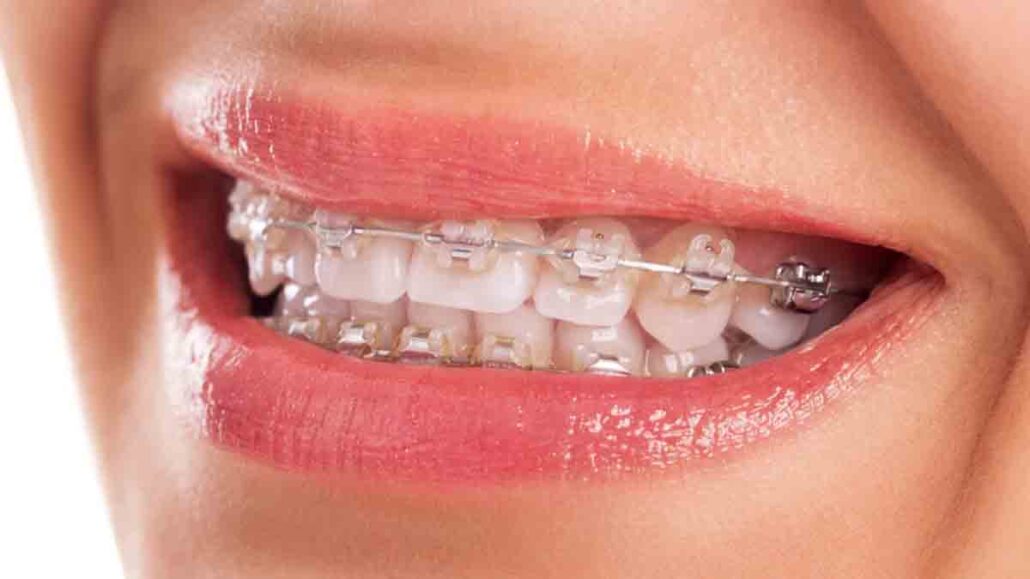Can Insurance Cover Braces? The cost of orthodontic treatment, such as braces, can be a significant financial burden. Many people wonder if their insurance will cover these expenses. While it’s a common misconception that health insurance plans cover braces, the reality is that they typically do not. Health insurance is primarily designed to cover medical emergencies and illnesses, not elective procedures like braces.

However, the situation is different with dental insurance. Many dental plans include orthodontic coverage, although the specifics vary greatly between providers. Some plans may cover a portion of the cost, while others might have annual limits or require a waiting period before coverage kicks in. It’s essential to carefully review your dental insurance policy to understand the extent of your coverage for braces.
Does Dental Insurance Cover Braces?
Certain factors govern the answer to this question. If you are wondering whether or not does dental insurance cover braces, this are what you need to know.
- Common Coverage: Many dental insurance plans do offer some coverage for orthodontic treatments, including braces. However, the extent of this coverage varies widely between insurers.
- Medical Necessity: Insurance companies often require braces to be medically necessary rather than purely cosmetic. This means that your orthodontist will need to document how misaligned teeth are affecting your oral health or overall well-being.
- Age Restrictions: Some plans have age limits for orthodontic coverage, typically focusing on children and adolescents.
- Waiting Periods: There might be a waiting period before orthodontic benefits kick in, so it’s essential to check your policy carefully.
- Coverage Limits: Even if your plan covers braces, there may be annual or lifetime maximums on orthodontic benefits.
Factors Affecting Braces Coverage
Several factors influence whether your insurance will cover braces and the amount of coverage you can expect:
- Type of Braces: Traditional metal braces are often covered, but other options like ceramic or lingual braces might have different coverage levels.
- Insurance Plan: The specific details of your dental insurance plan will determine your coverage.
- Medical Necessity: As mentioned earlier, your orthodontist’s assessment of medical necessity is crucial.
- Age: Some plans have age restrictions for orthodontic coverage.
Maximizing Your Braces Coverage
To make the most of your insurance benefits:
- Review Your Policy: Understand the specifics of your dental insurance plan, including coverage for orthodontics, waiting periods, and annual or lifetime limits.
- Consult Your Orthodontist: Discuss your insurance coverage with your orthodontist. They can help determine the best treatment plan and provide necessary documentation for insurance claims.
- Consider a Dental Savings Plan: If your insurance coverage is limited, a dental savings plan can help offset the cost of braces.
- Explore Financing Options: Many orthodontists offer financing plans to make treatment more affordable.
Additional Considerations
- Medical Insurance: While less common, some medical insurance plans may cover orthodontic treatment if it’s deemed medically necessary due to a specific medical condition.
- Supplemental Orthodontic Insurance: You might consider purchasing a standalone orthodontic insurance policy to cover braces costs.
FAQs About Insurance and Braces
Will my medical insurance cover braces for cosmetic reasons?
Generally, no. Medical insurance typically covers orthodontic treatment only if it’s medically necessary to address a functional or structural issue.
Can I get braces covered by insurance as an adult?
It’s possible, but less common. Dental insurance plans often have age limits for orthodontic coverage. However, if the treatment is deemed medically necessary, medical insurance might cover it.
What if my insurance only covers a portion of the cost?
Many orthodontists offer payment plans or financing options to help manage out-of-pocket expenses. Additionally, exploring dental savings plans or health savings accounts (HSAs) can help offset costs.
How long is the typical waiting period for orthodontic coverage?
Waiting periods vary by insurance plan. Some plans may have a waiting period of several months, while others may not have one at all.
Can I use my health insurance to cover braces?
Generally, health insurance doesn’t cover braces unless they are medically necessary to treat a severe underlying condition.
Will my dental insurance cover Invisalign?
Some dental insurance plans cover Invisalign, but coverage may be limited compared to traditional braces. Check your policy details.
What if I need braces as an adult?
Many dental insurance plans cover orthodontic treatment for adults, but coverage may be limited or subject to specific conditions.
Can I get a referral to an orthodontist from my general dentist?
Yes, your general dentist can refer you to an orthodontist if they believe you need orthodontic treatment.
Conclusion
Determining whether insurance covers braces depend on various factors. While it’s possible to find plans that offer orthodontic coverage, especially for children, it’s crucial to understand the specifics of your policy. By carefully reviewing your plan and exploring available options, you can make informed decisions about your orthodontic treatment.

